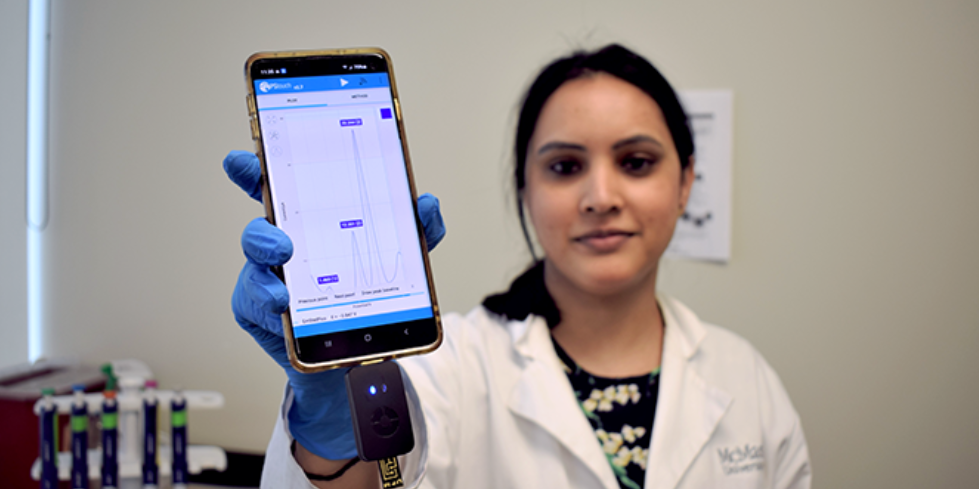Hamilton researchers develop rapid, reliable test for COVID and other infections using smartphone
Published June 13, 2022 at 2:15 pm

Most of us knew that sooner or later, the bright minds in health sciences and technology would find a way for the general population to test for infections using their smartphone. But most of us didn’t expect it to happen this soon.
Thanks to federal funding and the support of a health-care technology company, researchers at McMaster University in Hamilton have developed a rapid, accurate, and portable diagnostic test that is headed to the marketplace.
Biochemist Yingfu Li and engineer Leyla Soleymani are part of a team from McMaster’s faculties of Health Sciences, Science and Engineering. Their test can effectively identify COVID-19 and can be readily adapted to detect other forms of infection.
“The pandemic has certainly not been positive,” Soleymani told McMaster Brighter World, “but it has brought together many people to give us a chance to work together on one common goal.”
The aptamer-based test works with a small sample of saliva. When mixed with a chemical reagent, the sample is inserted into a small reader attached to a smartphone.
The results are provided within minutes.
Once commercialized, the device could allow testing, diagnosis, and prescription all to take place within the same patient visit — reducing the spread of infection by confirming without delay who needs to be isolated or treated.
“We want to be able to streamline the process of adapting the technology to other infections so we can react quickly to new threats, whether they are variants of COVID or other forms of infection,” Li said.
“By anticipating the future need for testing we will be able to react much more quickly when specific new threats emerge.”
The test would eliminate the need for time-consuming laboratory work.
Health technology company Zentek plans to invest more than $1 million over the next five years as it works with McMaster researchers and other partners to scale up production of the test components so they can be manufactured at a commercial level and to adapt the technology for other forms of infection.
The research and commercialization efforts are part of Canada’s Global Nexus for Pandemics and Biological Threats at McMaster, which brings together an international network of researchers, government, industry, health care, and other partners with the goal of finding solutions to the current pandemic while preparing for future global health threats such as antimicrobial resistance.
insauga's Editorial Standards and Policies advertising





